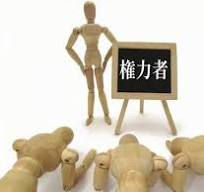Monsters Come to Town: The Origins of Chinese Nwe Year Firecracker.
- 弓長金参
- May 3, 2025
- 3 min read
It's almost New Year's Eve, the New Year.
There are several ways to call it, but in Chinese, New Year's Eve is called ChuXi(除夕). To be precise, it refers to the period from sunset on New Year's Eve to the New Year. Xi(夕) to be except(Chu:除), so it is called ChuXi(除夕).

The Xi is a demon that has been passed down since ancient times in China. It is a frightening demon that comes to human settlements as the New Year approaches and attacks people from the darkness. It has a strange property that it does not like sound or light, and also dislike anything red.
In ancient China, people were aware of the weakness of Xi, so on the night of New Year's Eve, they would make noise and light firecrackers and stick red paper on the gates of their house to drive away Xi. On the red paper, Spring Festival Couplets, people would write words wishing for a Good Year, such as No illness or Disaster and Prosperity in Business.

The custom of excluding evening, Xi as ChuXi, dates back more than 2,500 years.
A 6th century book records Setting off Firecrackers on New Year's Eve, which shows that it was already an established New Year tradition. Neighboring countries with a strong influence of Chinese culture, such as Korea and Vietnam, also took root as a New Year's Eve custom.
Firecrackers are synonymous with Chinese New Year. As you know, they use gunpowder.

Gunpowder is one of the four great inventions of ancient China. The other three are the Compass, Paper, Printing Technology, and Gunpowder. How did gunpowder come about?
Since ancient times, monks and Taoists of Taoism, an indigenous religion in China, have made various medicines called Elixir of Life. Elixir of Life to achieve eternal life. Some of them actually work as medicine, but looking back today, some are obviously poisonous, so it's a mixed bag.
Among the many elixir of life, Taoists invented gunpowder.
This was during the Sui and Tang dynasties in the 7th and 8th centuries. Gunpowder was initially thought of as a medicine, but there were numerous incidents of houses exploding and catching fire. The inventor, a Taoist priest, lost interest when they found out that gunpowder was not a medicine, but military officials took notice and gradually began to use it as a weapon.

During the Northern Song dynasty around the 11th century, they invented arrows that could be fired far away using the explosive power of gunpowder, and grenades that could be thrown at enemy troops to kill or injure an unspecified number of people.
In the 13th century, it was introduced to Europe and improved into cannons and firearms, and became widespread as a more powerful weapon than the traditional swords and spears.
So what did people do with Firecrackers before gunpowder was invented?
At that time, bamboo was burned and the popped bamboo produced a sound. In modern Chinese, it is generally written as Bianpao(鞭砲) because of the whip-like connected guns, but just like in Japan, it is also Baozhu(爆竹), because the Bamboo(Zhu:竹) to be Explodes(Bao:爆), a vestige of the ancient custom.

By the way, does Xi exist? One theory is that Xi refers to hungry wild animals.
It sneaks in the darkness and attacks people from behind mercilessly. However, it is frightened by sound and light and runs away, and is wary of unfamiliar red paper. Despite being a legendary monster, it does not have the special ability to breathing fire and fly in the sky. Although it has a cruel side, it is also cautious and timid, which are the very characteristics of a starving wild animal in winter.
Whether it's firecrackers or Spring Festival Couplets, stories about the origins of ancient customs are created after the fact.

The Xi attribute was probably added later to make more dramatic.
The idea of warding off evil spirits with the sound and light of firecrackers is similar to the Japanese Shinto idea of clapping hands and purifying the air with sound. The silence after the sound has disappeared cleanses the soul. It may be a common sensibility among all human beings.
Hoping that the misfortune will be over. I wish everyone a happy new year.


